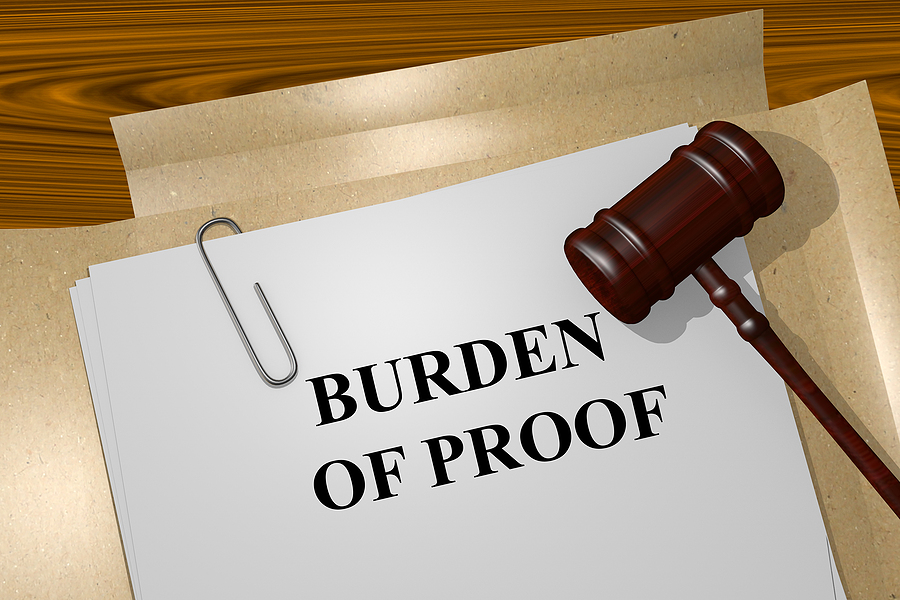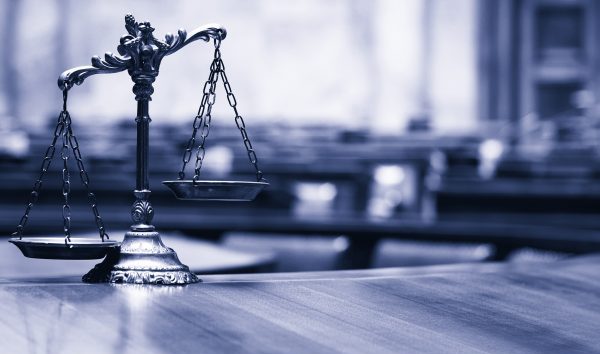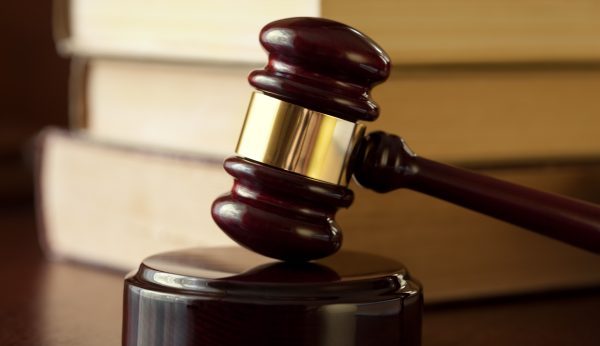Navigating the legal labyrinth of a criminal case can be among the most daunting experiences for defendants, their families, and anyone personally affected by the justice system. Understanding the burden of proof is not just a legal jargon; it’s a fundamental concept that shapes the narrative of a trial and the fate of those involved.
For many, the first real encounter with the daunting nature of a criminal charge is the realization that proving innocence is not the primary concern—rather, it is the state’s daunting task to prove guilt. This fundamental aspect of criminal law strikes at the very heart of due process and serves as a beacon of hope for those fighting to clear their name. Through this blog, we’ll examine the burden of proof, unraveling what it means for the accused, and revealing how it can shape the outcome of a criminal trial.

Explaining Burden of Proof
The burden of proof is the legal obligation to provide evidence in support of a fact or issue. The burden in a criminal case—uniquely borne by the prosecution—is to demonstrate the defendant’s guilt. This obligation does not waver, and it must be fulfilled with convincing evidence before any conviction is lawful. For a case to hold water, the prosecution must prove beyond a reasonable doubt that the accused is guilty.
In doing so, the prosecution must establish several key elements of the alleged crime:
- The criminal act (actus reus)
- The mental state (mens rea) accompanying such act
- Causation linking the act to the harm
Each of these elements must be proven to the high standard set by law, and anything less cannot result in a conviction.
Legal Principles and Standards
The standard of proof is the yardstick used to measure the strength of evidence required to meet the burden of proof. There are several degrees of this standard, with the most stringent being “beyond a reasonable doubt.” This level of certainty demands that there is no logical explanation other than the accused’s guilt.
Other standards, such as “clear and convincing evidence” and “preponderance of the evidence,” are used in civil cases but hold little weight in the realm of criminal law. When a person’s freedom is at stake, the high threshold of reasonable doubt prevails, serving as a formidable barricade to wrongful convictions.
The Role of the Prosecutor
Prosecutors are agents of the state tasked with enforcing the law. Their role in meeting the burden of proof is critical—they are the architects of the state’s case, piecing together evidence, and weaving a narrative that seeks to convince a jury of guilt. Decisions on charging and prosecuting are serious responsibilities, requiring consideration of public interest and the likelihood of securing a conviction.
A crucial aspect of the prosecutor’s role is discretion. They have the power to negotiate plea deals, decide which charges to pursue, and how the case is presented in court. The weight of this responsibility cannot be overstated, as a prosecutor’s actions can have a lifelong impact on the accused.
Challenges to the Burden of Proof
Defense attorneys are the stalwart guardians of the accused, often deploying various tactics to challenge the prosecution’s burden. They may question the integrity of evidence, challenge the credibility of witnesses, or seek to undermine the prosecution’s case through the presentation of a compelling defense.
Common defense strategies include alibis, affirmative defenses, and casting doubt on the prosecution’s case. Cross-examination is a potent tool, as it allows the defense to scrutinize the testimonies of the state’s witnesses, often revealing inconsistencies or bias.
Witness credibility is a linchpin in the burden of proof—the duality of human nature means that while witnesses can be both the prosecution’s greatest asset and the defense’s most formidable foe, they can also inject uncertainty into the narrative of the trial.
Understanding Your Rights
The burden of proof is more than a legal construct—it is a shield for the innocent and a principle that demands respect within the justice system. For the accused and their families, understanding this concept is vital. It’s vital to engage with a thoughtful, competent legal defense that can ensure every avenue is explored to support the case against unfounded allegations.
Seeking legal counsel early and being informed about your rights and the legal process is pivotal. With the right guidance, individuals can better understand the charges against them, the potential outcomes of their case, and what they can do to support their defense.
Engaging with the legal system is a monumental challenge, but it is not insurmountable. Knowledge and empowerment can, and often do, tip the scales in favor of justice.
Conclusion
In the fraught arena of criminal justice, the burden of proof remains a beacon of hope for the falsely accused and a linchpin for the legitimacy of any conviction. It is a standard that has stood the test of time, upholding the principles of due process and the presumption of innocence. Through understanding and appreciating this concept, defendants and their families can better equip themselves for the arduous road that is a criminal trial.
For those currently ensnared in the complexities of the justice system, whether in the dock or supporting a loved one, take solace in the knowledge not just of the burden of proof but in the resources available to challenge it. The weight of evidence is shared by all; it is a collective effort to ensure that justice remains blind, but the scales not unbalanced. Together, we can strive for a system that truly serves and protects all.
If you or your loved one has been charged with a crime or any other, get in touch with us immediately. Contact Attorney David E. Lewis at 317-636-7514 to speak with a seasoned criminal defense attorney in Indianapolis, Indiana. Our law firm will get you the best possible outcome to your criminal case!
Related Posts:
Does Someone Need Proof to Issue a Restraining Order Against Me?
What if I Regret Entering a Guilty Plea?
Should I Waive My Right to a Lawyer if I Know I’ll Be Found Guilty?





